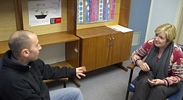|
|
 Acne (1,500) Acne (1,500)
 Addictions (1,500) Addictions (1,500)
 Advice (1,500) Advice (1,500)
 Allergies (1,092) Allergies (1,092)
 Alternative Medicine (1,500) Alternative Medicine (1,500)
 Anti Aging (1,500) Anti Aging (1,500)
 Breakup (1,500) Breakup (1,500)
 Cancer (1,499) Cancer (1,499)
 Dental Care (1,500) Dental Care (1,500)
 Disabilities (1,500) Disabilities (1,500)
 Divorce (1,500) Divorce (1,500)
 Elderly Care (1,498) Elderly Care (1,498)
 Goal Setting (1,500) Goal Setting (1,500)
 Hair Loss (1,500) Hair Loss (1,500)
 Health and Safety (1,497) Health and Safety (1,497)
 Hearing (1,500) Hearing (1,500)
 Law of Attraction (1,499) Law of Attraction (1,499)
 Marriage (1,500) Marriage (1,500)
 Medicine (1,497) Medicine (1,497)
 Meditation (1,499) Meditation (1,499)
 Men's Health (1,500) Men's Health (1,500)
 Mental Health (1,500) Mental Health (1,500)
 Motivational (1,500) Motivational (1,500)
 Nutrition (1,495) Nutrition (1,495)
 Personal Injury (1,499) Personal Injury (1,499)
 Plastic Surgeries (1,500) Plastic Surgeries (1,500)
 Pregnancy (1,496) Pregnancy (1,496)
 Psychology (1,500) Psychology (1,500)
 Public Speaking (1,500) Public Speaking (1,500)
 Quit Smoking (1,500) Quit Smoking (1,500)
 Religion (1,499) Religion (1,499)
 Self Help (1,500) Self Help (1,500)
 Skin Care (1,500) Skin Care (1,500)
 Sleep (1,500) Sleep (1,500)
 Stress Management (1,500) Stress Management (1,500)
 Teenagers (1,492) Teenagers (1,492)
 Time Management (1,500) Time Management (1,500)
 Weddings (1,500) Weddings (1,500)
 Wellness (1,500) Wellness (1,500)
 Women's Health (1,500) Women's Health (1,500)
 Women's Issues (1,500) Women's Issues (1,500)
|
"Joyce" was on the witness stand and clearly uncomfortable. She had been subpoenaed to testify at the divorce of her best friend, "Monica", and was being forced to reveal what Monica had confided to her. Thankfully, Monica had not been unfaithful, but she had confessed that the divorce was wearing her down, making her depressed, and affecting her ability to care for her two young children. Depression, loss of sleep, lack of energy…perfectly normal reactions to the stress of divorce, right? Perhaps, but these private admissions were now being introduced as evidence by Monica's husband of her unfitness as a mother in their battle for custody. This situation illustrates the importance of advice I provide clients about how to relate to their friends, family and counselors while going through a divorce. Clearly, one of the most helpful things you can do during a divorce is form a personal support group, but remember that whatever you do or say, except in relationships that the law recognizes as "privileged", can end up as evidence against you at trial, should your divorce turn contentious. With your friends and family, avoid unloading on them all the painful details of who did what to whom. Not only can that come back to haunt you at trial, but non-stop emoting over your troubles will likely wear them down as well. And, don't involve your mutual friends in the divorce. Insisting that they take your side, or trying to alienate them from your spouse, may cost you their friendship, and could be used in court to paint you in an unfavorable light. The best place to air out your feelings is with a psychologist, psychiatrist or Licensed Professional Counselor ("LPC"), or with your clergy person. They are trained to not only be supportive, but to assist you in dealing with the burdens of a divorce. Importantly, what you discuss, or even why you sought their counsel, is beyond the reach of the court, as these matters are protected as confidential. However, this protection does not apply to all counselors or clergy. In Missouri, counselors not a member of one of the classes I've named can be compelled to testify about the details revealed in a therapy session, although this occurs rarely and in only the most divisive cases. Further, a conversation with a minister may not be protected if that person is not then functioning as your "spiritual advisor, confessor, counselor or comforter". In a recent case, the court ruled that there was no privilege as the clergy person was mainly being used as a notary at the time the communication was made! The point is that to keep a privilege intact with any of these professionals with whom a privilege communication is available, you must be seeing them in their professional capacity, not "in passing" at the grocery store or at a cocktail party.
|
|
|



